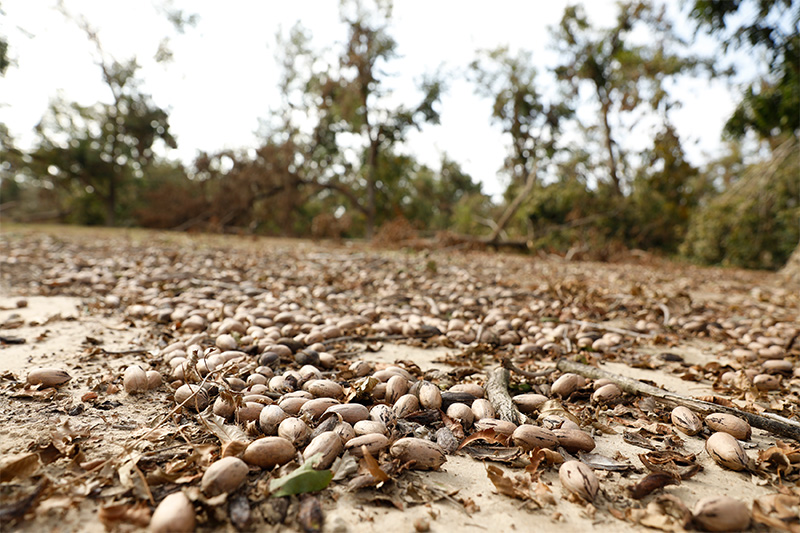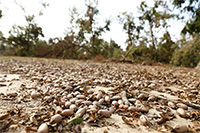Despite a low supply of Georgia-grown pecans, Georgia producers are faced with lower prices for what remains of the pecan crop after Hurricane Michael.
“With the crop pretty much cut in half in Georgia, you would expect to see a change in the market going up, but we’re not seeing that at all right now,” said Lenny Wells, University of Georgia Cooperative Extension pecan specialist.
Wells estimated the current price at 80 cents per pound less than what growers received last year. For example, the ‘Stuart’ variety averaged approximately $2.30 at this time last year. Now, the price ranges from $1.50 to $1.80, depending on quality. The price for the ‘Desirable’ variety has dropped from $3.10 last year to $2.30 this year.
Hurricane losses counter consumer price effects of China tariffs
“With the China tariff situation, we knew the price for pecans would be coming down some this year, but it’s coming down a little more than most growers expected or would like it to be,” said Wells in reference to the recent tariffs China has put on 128 products it imports from the U.S., including aluminum, airplanes, cars, fruit, pork, nuts, soybeans, fruit and steel piping.
As the pecan season progresses, domestic shellers and buyers may begin to realize how short the crop year is, and prices may improve, he said.
Consumer pecan prices are still normal, according to Greg Fonsah, a professor in UGA’s Department of Agricultural and Applied Economics. He said that before the hurricane, consumer prices were expected to drop because the China tariffs would drastically reduce the exports of Georgia pecans to China, and the remaining supply could flood the domestic market. But Hurricane Michael’s impact on southwest Georgia on October 10-11 halved the pecan crop that would have flooded the domestic market, maintaining consumer prices for the time being.
According to nuts.com, hard-shell pecans are selling for $6.99 per pound and paper-shell pecans are $7.49 per pound. Pecans with no shells are $13.99 per pound.
Georgia suffered a staggering $560 million loss to its pecan crop due to damages from Hurricane Michael. The state’s estimated losses include $100 million in lost nuts, $260 million in lost trees and $200 million in lost income over the next decade while replacement trees grow.
Drop off in ‘Desirable’ trees
The supply of one of Georgia’s most popular pecan varieties, ‘Desirable’, is expected to be drastically reduced following Hurricane Michael. ‘Desirable’ pecans, which produce a large nut but are extremely susceptible to pecan scab disease, were already supplanted by the ‘Pawnee’ variety as the No. 1 planted variety prior to the hurricane.
Wells estimates that ‘Desirable’ was the most frequently planted variety from the 1990s until about 2014.
Pecan scab is a fungal disease that infects the leaves or nuts of pecans. If it impacts the nut early enough, scab can cause it to blacken and fall from the tree. Scab is a common disease that growers have to manage throughout the state. It is most severe, however, in southwest and southeast Georgia, where the bulk of Georgia’s pecan production is produced.
As Georgia growers begin to replant trees, Wells believes they will continue to shift away from growing the ‘Desirable’ varieties.
“Certainly, now with as many ‘Desirable’ trees that have been lost due to the storm, I seriously doubt that those will be planted back,” Wells said. “Especially when we are at these lower prices, because we just can’t afford to grow high-input varieties for some of the prices we’re seeing now. There is just not enough profit left after so many inputs, like spraying them to keep scab off of them.”
Growers spray some varieties between 10 and 12 times during an average year. This year’s wet conditions, which make pecans more vulnerable to diseases, caused farmers to make as many as 16 applications to ‘Desirable’ and other scab-susceptible varieties. Despite these efforts, Wells said, growers still had problems.
For up-to-date information regarding Georgia pecans, see https://site.extension.uga.edu/pecan/.








